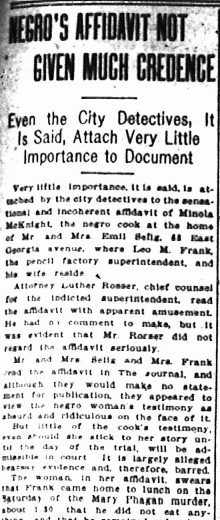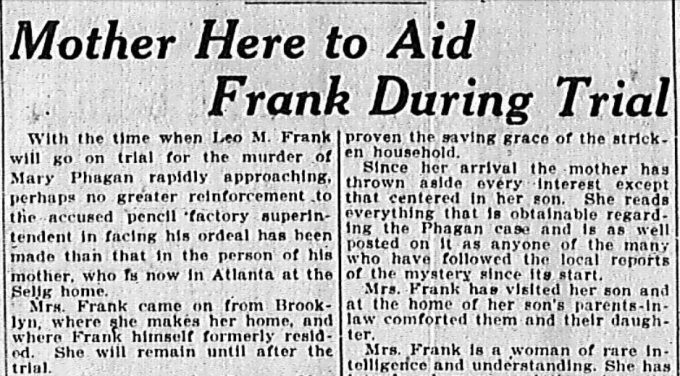Another in our series of new transcriptions of contemporary articles on the Leo Frank case.
Atlanta Constitution
August 16th, 1913
The more or less listless curiosity of the courtroom spectators was scarcely aroused during the afternoon until the last witness was called who was Mrs. Rae Frank of Brooklyn, N. Y. The mother of Leo M. Frank.
Not the slightest intimation had been given that Mrs. Frank would be called to the stand and a whisper of surprise spread over the room as the leaden-eyed mother, weary with the many days through which she has patiently sat and heard every conceivable blight cast at the name of her son slowly ascended the stand.
As she held up her hand to take the oath there was a glimmer of the hope in her eyes that now she might be able to say some word which might help or at least comfort her son.
Mr. Rosser questioned her.
“Are you the mother of Leo Frank?”
“Yes.”
“Where do you live?”
“In Brooklyn.”
“Where did you move from to Brooklyn?”
“New York city.”

















